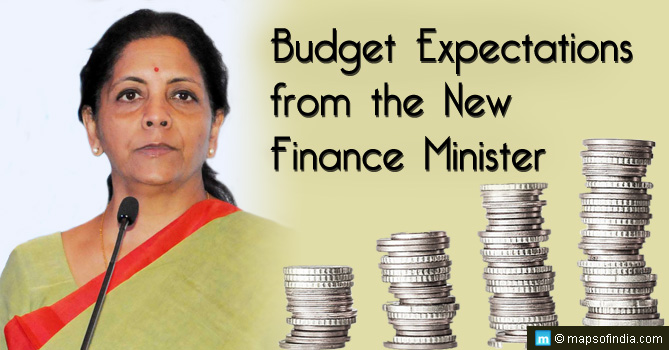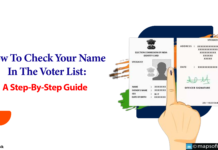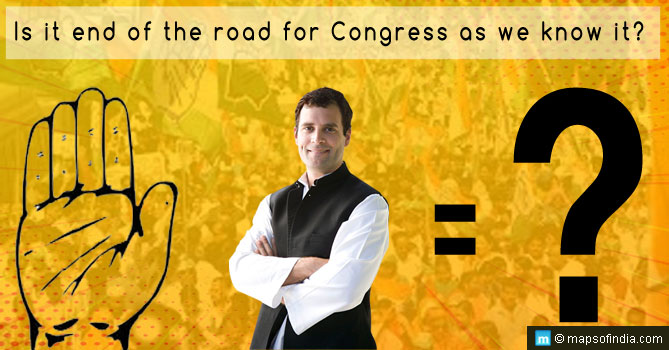
Forget the ICC World Cup, Indians are waiting with bated breath for the presentation of the Union Budget by the newly sworn in Finance Minister, Ms Nirmala Sitharaman on July 5, 2019. Among the many changes made by the PM Narendra Modi led government’s first tenure, there are two that relate to the presentation of the Union Budget. The NDA government decided to move up the date of the budget announcement to February 1 (instead of the last day of the month) and merged the Rail Budget with the Union Budget. This year the budget presented on February 1, however, was an interim budget, given that the Lok Sabha elections were to be held in May. NDA has returned to power with a whopping majority, and this is Mr Modi’s second tenure at the PMO. Naturally the expectations out of the budget to be presented later this week are rather high.
Here are some of the announcements that are expected by market watchers:
Income Tax Implications
The return of the NDA government is a clear indication of the popularity of the BJP among the middle class. This budget could see some announcements designed to appease the middle-income group. The interim budget had already raised the tax rebate under Section 87 A to INR 5 lakhs and this is likely to remain unchanged. Income tax deductions under Section 80 (C) could, however, be increased to INR 2 lakhs from INR 1.5 lakhs, fuelling more household savings.
Tackling Unemployment
One of the greatest crises that India is facing now is that of soaring unemployment (estimated at 6.1% in 2017-18). This budget is Ms. Sitharaman’s opportunity to address this major criticism levelled against the NDA government in the run up to the elections. We can thus expect a substantial allocation to go towards overhauling the education system and introduction of more schemes similar to Pradhan Mantri MUDRA Yojana. We could also be looking at the launch of more programmes for vocational training.
Real Estate Expectations
Real estate is the second largest employer in India. Major developers and influencers are already baying for industry status to be granted to the real estate sector. We should add major incentives to home buyers and developers in the upcoming budget. If Housing for All by 2022 is to become a reality, the Finance Minister should focus on reforms such as single-window clearance, greater ease of doing business, and more funding to the Smart Cities Project.
Sectoral Reforms
Economic slowdown is a reality that the NDA government must face. The last quarter of 2018-19 saw economic growth pegged at 5.8 percent, a 5-year low. There is an urgent need for infrastructural reforms, particularly in sectors such automobile, steel, and oil and natural gas. Measures to combat increase in oil prices will indirectly benefit the capital goods and engineering industry, which in turn will bring the promise of economic growth and development. If this is not addressed, we are likely to see little increase in FDI as well.
GST Reshuffle
Much has been said and done on the GST front. The NDA government has added this major tax reform to its list of successes. It is now time to walk the talk and include non-GST products such as petroleum and electricity within the ambit. GST rationalization is at the heart of budget expectations from many major sectors such as the automobile sector, which is undergoing a major slowdown. The gems and jewellery sector which contributes to about 7% of the national GDP is also looking for a GST rejig to boost sales.
Agricultural Schemes
The Modi Government 2.0 as it is now being called has to address the growing agrarian distress, particularly at a time when the monsoon seems to be delayed. Ms. Sitharaman may do well to focus on incentivising investment in agriculture, particularly when it comes to research and development into seed and soil health, micro-irrigation, deregulation of nitrogen fertilizer etc. While more farm subsidies may not be the answer, the government must look into streamlining the compensation process ensuring that the benefits reach the intended farmers.
Revised Revenue Targets
It is expected that in the upcoming budget, FM Sitharaman will be revising the revenue targets for this fiscal year, scaling them down between 8 to 10 percent. Expenditure cuts are also on the cards. This follows from recently released data that reveals an 8.6 % revenue shortfall for the fiscal year 2018-19.
Battling the Environmental Crisis
Global warming is real and India is headed towards a major water crisis. The sooner we accept this and take drastic measures to conserve natural resources, the better will be our legacy for future generations. This may not feature high on the list of political or economic demands but the government must allocate a substantial sum towards battling the environmental crisis that is on the horizon. This is a matter of survival.
Related Links:
PM Modi Gets his Dream Cabinet 2.0




